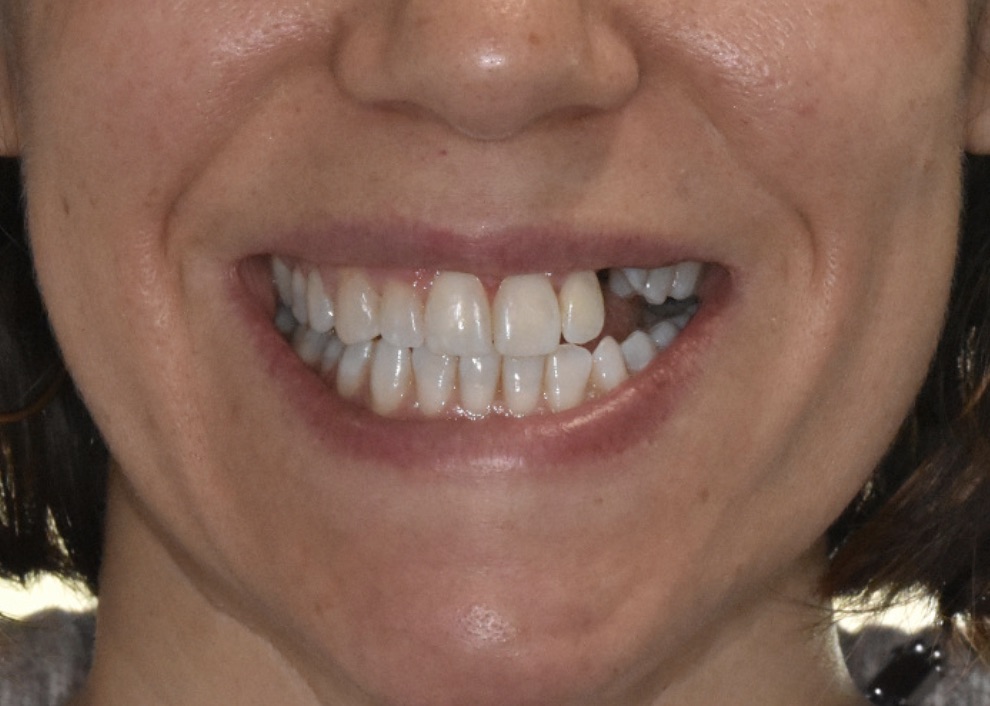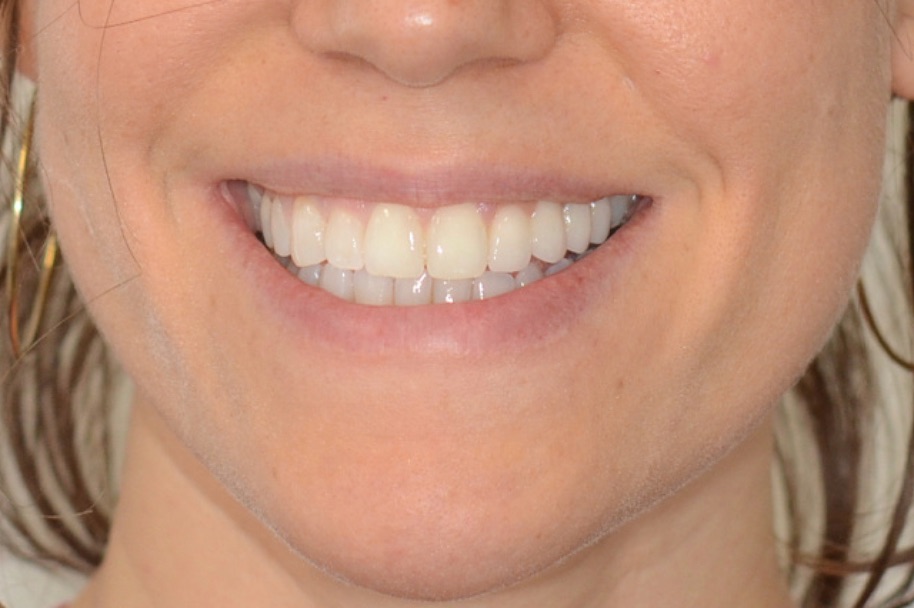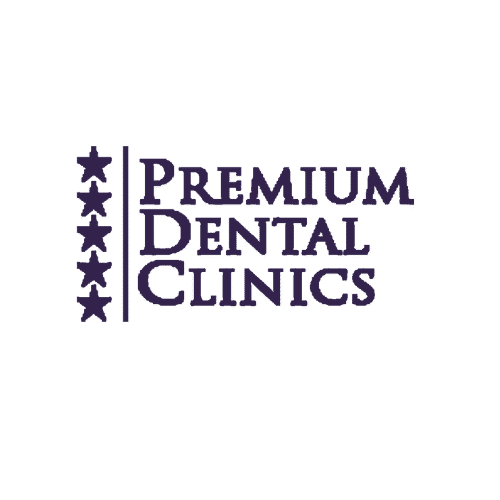Dental bridge – solution, cost, reimbursement
Regain chewing comfort and aesthetics!
Have you lost one or more teeth but your other teeth are perfectly healthy? A dental bridge is very likely the right solution for you.
Dental bridges at CHD
A thorough examination with dental X-rays is absolutely necessary before considering the placement of a dental bridge. The dentist must ensure that your oral health allows for the placement of a dental bridge and that this solution is the most appropriate in your case.



Rates
| Dental bridges | On quote from3500.- |
You have the possibility to pay by invoices and stagger your payments.
Fair & transparent prices
We strive to maintain unbeatable value for money: reasonable prices, which have not changed since 2016, for quality of care that has earned us numerous awards:




Advice
A dental bridge is a fixed prosthesis. You will not be able to remove it for cleaning. It is therefore essential, to ensure the success and longevity of your treatment, to maintain impeccable oral hygiene every day.
Next appointment
Your next appointment (recall) is scheduled as part of the personalised follow-up offered by CHD. This is based on your lifestyle, the quality of your saliva and other factors, to ensure that your oral health remains at an optimal level. And no need to worry, we’ll take care of reminding you: text message, letter, email, it’s your choice!
Our dental clinics
FAQ
What are the advantages of a dental bridge?
There are several types of prostheses that can replace multiple missing teeth: dental implants (a small screw fixed into the jawbone on which a ceramic dental crown is placed); fixed partial prostheses such as dental bridges; or full fixed prostheses like All on 4, All on 6 or All on 8 implants.
There are also full or partial removable prostheses, more commonly known as “dentures”. As the name suggests, they are designed to be removed daily and are not fixed in place like natural teeth.
How much does a dental bridge cost?
The cost of a dental bridge varies depending on many factors: the dental clinic you consult, the number of teeth to replace, your oral health, the materials used, whether the abutment teeth require treatment beforehand, etc.
In Switzerland, expect around CHF 3,000 for a three-unit bridge supported by natural roots (i.e., not on implants).
Consult your dentist for a personalised quote.
What are the disadvantages of a dental bridge?
The main drawback of a dental bridge is that it usually requires reshaping the neighbouring healthy teeth. To allow these adjacent teeth to serve as abutments, the dentist must prepare them to support the artificial teeth.
A dental bridge can also lead to long-term bone loss at the site of the missing tooth between the abutments. Although fixed, the bridge is not anchored in the jaw (unlike a dental implant), which may cause gradual gum and bone recession.
What are the alternatives to a dental bridge?
If you are missing one or more teeth and do not wish (or are unable) to have a dental bridge fitted, other options include:
· Dental implant: a screw is placed in the jawbone and a dental crown (typically ceramic, zirconia, or metal-ceramic) is fixed to it;
· Partial removable prosthesis to replace several missing teeth with a device that can be regularly removed;
· In cases of complete edentulism (no remaining teeth on an arch), a full prosthesis is generally recommended: either removable (a denture) or fixed on implants, such as an All-on-4, All-on-6 or All-on-8 solution.
Is a dental bridge the right solution for you?
After an initial consultation with your dentist, you will know whether a dental bridge is suitable for your situation. Several criteria must be considered: the number of teeth to replace, the condition of your remaining teeth and oral cavity, your preferences, and your budget.
How can a dental bridge be reimbursed?
In Switzerland, the LAMal basic health insurance only covers dental prostheses if the teeth were damaged following an accident or a serious dental illness.
To obtain reimbursement outside of these cases, you can subscribe to supplementary dental insurance.
What is the difference between a bridge and a dental implant?
A dental implant is a small screw fixed into the jawbone, onto which a dental crown is placed. It serves as a support for an artificial tooth. Implant placement is usually slightly more complex, and although rare, implant failures can occur. However, it is often a more durable solution.
A dental bridge, meanwhile, is a series of connected crowns. It is fixed to neighbouring teeth, which may be natural or implant-supported. Bridge placement is generally faster than implant placement.
Can you eat normally with a dental bridge?
A dental bridge offers high stability and strength. There are generally no chewing limitations, as long as it remains within the physiological limits of a natural tooth.
Are dental bridges comfortable?
Yes. A dental bridge is a prosthesis permanently fixed in the patient’s mouth. Once in place, it provides both comfort and stability, to the extent that most patients can no longer tell the difference from a natural tooth.
How long does it take to make a dental bridge?
The fabrication of a dental bridge in the laboratory typically takes around three weeks.
What are the steps involved in getting a dental bridge?
– Step 1: an initial consultation is carried out, including an assessment of the abutment teeth that will support the bridge;
– Step 2: this step usually involves a scaling and cleaning by the hygienist or dentist to ensure a healthy, stable gum;
– Step 3: for bridges on natural roots, the dentist reshapes the adjacent teeth. For implant-supported bridges, the adjacent teeth are extracted and implants are placed (under local anaesthesia). Impressions are then taken for the lab, and a temporary bridge is placed;
– Step 4: for implant cases, healing takes about six weeks before the final bridge can be fitted. The timeframe is shorter for bridges on natural roots: expect 2 to 7 days on average for the bridge to be made.
What is the lifespan of a dental bridge?
The lifespan of a dental bridge depends on various factors, especially the quality of the materials used (ceramic or metal), oral health, and the patient’s commitment to good oral hygiene. On average, a bridge can last more than 15 to 20 years if oral hygiene is well maintained around the abutment teeth.
How do I care for my dental bridge?
Follow your hygienist’s instructions carefully, including:
· Brush your teeth after every meal;
· Don’t neglect interdental cleaning. Use dental floss, super floss under the pontic, or an interdental brush;
· Avoid very hard or sticky foods, as well as alcohol and smoking (you might end up with a broken dental bridge);
· Attend the follow-up appointments recommended by your hygienist.